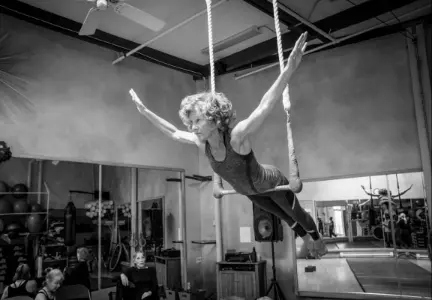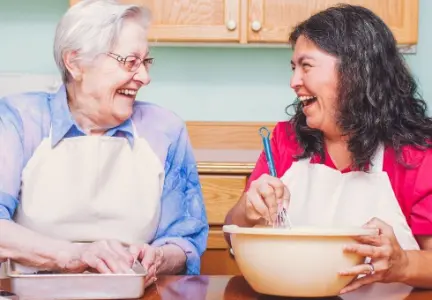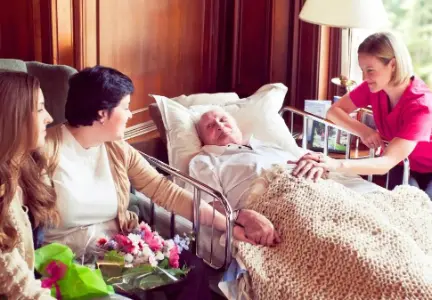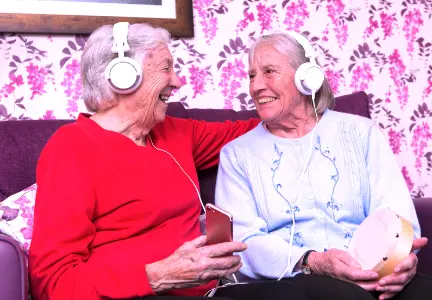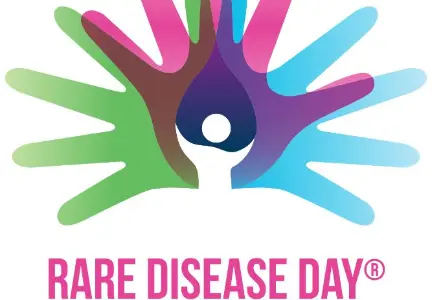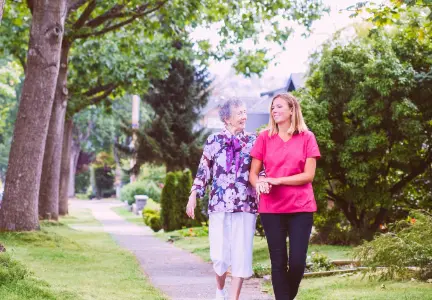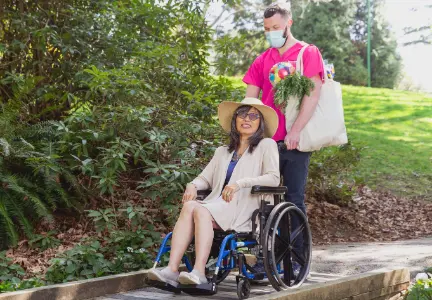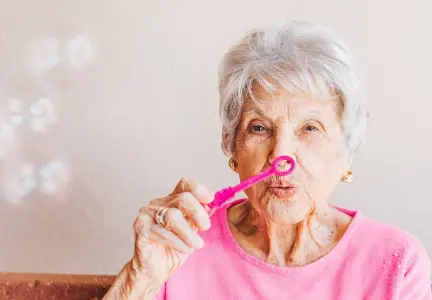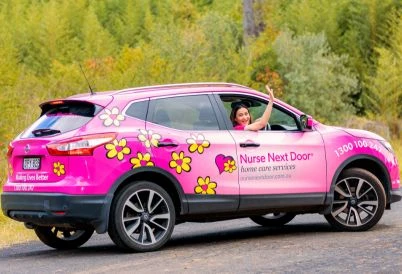Four valuable reasons to seek out shared experiences as we age
“Happiness is the only thing that multiplies when you share it.”Albert Schweitzer
We have had the privilege of a shared experience with Bronwen who, now in her 70’s, had never been hot air ballooning although it had been a dream for many years. Why? Quite simply she couldn’t convince friends or family to join her and she didn’t want the experience alone. A lack of shared experiences can have a massive impact on our happiness and well-being and as we age it can be more difficult to maintain relationships through which to share our experiences: grandchildren grow up and move away, adult children get busy with work and kids, and friends may be less mobile making catch-ups more difficult. But what is it about relationships, companionship and the shared experience that is so important to us? In this article, we explore the shared experience, the science and research that highlights the impact sharing an experience has on both our mental and physical health and the four important reasons we should seek out companionship and opportunities to share experiences, at any age.
1. Develop Longer Lasting Happiness
“Happiness quite unshared can scarcely be called happiness; it has no taste.”Charlotte Brontë
In her book ‘The Happiness Track’, psychologist Emma Seppälä explores the difference between happiness created through material gains such as eating or shopping and happiness gained from more meaningful experiences. The first, hedonistic happiness, is short-lived and, whilst it certainly makes us happy, the emotion is not long-lasting. The second, longer-lasting happiness - eudaimonistic happiness, - comes from experiences that have more meaning and purpose, experiences that are beyond our own self. Don’t get us wrong, hedonistic happiness is certainly helpful to our overall wellbeing. A great meal or an afternoon of shopping can do wonders for the soul and research shows that in the area of positive psychology, we need roughly five positive experiences to offset every one negative experience due to our tendency to lean unconsciously, habitually, towards our negative bias. But by simply sharing that meal, or spending the afternoon shopping with friends, we begin to attach deeper meaning to the experience. Confirmed in a UK study by Lambert et al, who found that verbalising happiness increased and sustained the well-being of participants well beyond that of simply having the experience. Shared experiences encourage us to become more aware, more mindful of ourselves and our feelings. As we recognise and verbalise our emotions, in turn, the emotions themselves often become more intense when shared, all of which heightens the experience, planting it more firmly in the memory, and restoring the balance between the negative and positive experiences that our brain is recording.
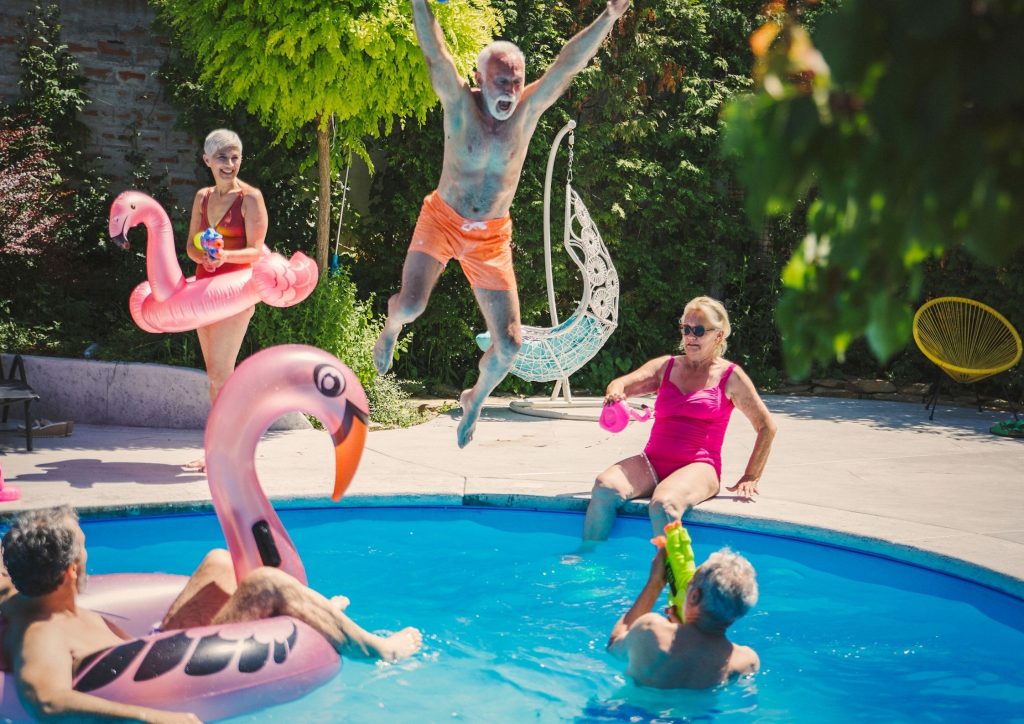
2. Create Meaningful Relationships
“If I could boil down happiness into one word, it would be relationships”.John De Hart
Numerous studies have shown the clear link between meaningful relationships, positive shared experiences, social connectedness, happiness and long life. Yet, so many of us continue to focus on how many friends we have rather than the quality of our relationships. In any relationship, quality is of the utmost importance if the relationship is to have a positive impact on our life. So whilst shared experiences heighten an experience for us each as individuals, they also hold the key to developing these is having a deeper, and more meaningful relationship. A shared experience has a bountiful amount of psychological benefits. It allows us to truly feel our own and other’s emotions, to develop our ability for emotional empathy and to understand each other better. These connections then give our own lives a sense of meaning and community. Psychologists Mark Leary and Roy Baumeister explain this as our need to satisfy two conditions: Mutual care and a feeling of being valuedNo matter how small, shared experiences create moments of belonging, as well as offering opportunities to take our relationships to even greater levels of trust and intimacy. Even something as simple as a shared cup of tea with a complete stranger during which a brief but meaningful conversation can take place creates the opportunity to deepen our understanding of each other and strengthen the meaning of a relationship, creating longer-lasting bonds and helping us feel better connected to those around us. The need for regular positive interactionAs we discussed earlier, our intuitive response is to look for danger or trouble in any situation and whilst important for our survival as cavemen, today our negative bias can lead us down a path of unhappiness and resignation. An important step in building our resilience against this negativity is a bank of positive experiences that remind us of the possibility and opportunity around us, for example, spending the day with your loved ones watching your favourite sports team play. Meaningful relationships offer the opportunity for regular moments of joy, pleasure, fun and content.

3. Broaden Your Sense of Purpose
“Learning is the ecstasy of life which keeps our hearts young and our minds sharp.”Debasish Mridha
We often think of shared experiences as something we do with our peers, friends of roughly the same age who share similar interests and passions. Yet shared experiences with someone younger offers us the opportunity to fulfil that need for a sense of purpose. When looking for opportunities to share an experience, there exists a huge opportunity to build what Kate Jerome, in her Ted talk: “Ignore the Gap” refers to as vertical or inter-generational connections - meaningful relationships with our children, our grandchildren and, as we live longer, our great-grandchildren. Helping a younger person solve a problem through the benefit of our experience, or passing on well-learnt skills such as playing chess, reading, cooking and gardening, allows us to remain feeling relevant. This allows us to recognise that older age has not rendered us useless but has in fact provided us with value. On the flip side, when we share an experience with a younger person, we create opportunities to challenge our thinking, and learn new skills, particularly in the area of technology, and to open our eyes to new possibilities. “ The skills and needs of both generations,” Jerome says, “fit together like the pieces of a jigsaw puzzle.”

4. Stay healthier, longer
Now that we understand the emotional benefits of seeking out opportunities to share our experiences, it’s time to consider the physical and cognitive health benefits. After all, if you’re going to live longer, and feel a greater sense of satisfaction and happiness, it makes sense that your physical and cognitive health match your emotional state. Numerous studies over many years have connected meaningful relationships with positive cognitive and physical health, and a decline in loneliness. A 2015 report on the mental health of older Australians by the Australian Institute of Health and Welfare (AIHW) highlights the increased risk of social isolation as we age - losing the ability to live independently, a decline in meaningful relationships and retirement from work - all likely contributors towards increased cognitive and physical decline. The good news is there is a strong association between meaningful relationships and helping us navigate loneliness, lowering the risk of heart attacks, strokes, depression and anxiety, as well as slowing down cognitive disease and dementia. Dr. Carla Perissinotto confirms loneliness refers to “the discrepancy between actual and desired relationships” and explains, as we’ve noted earlier, that loneliness “gets to the quality of the relationship” and the “meaningfulness of the activity,” backing up Mark Leary’s and Roy Baumeister’s theory that regular meaningful contact is best.
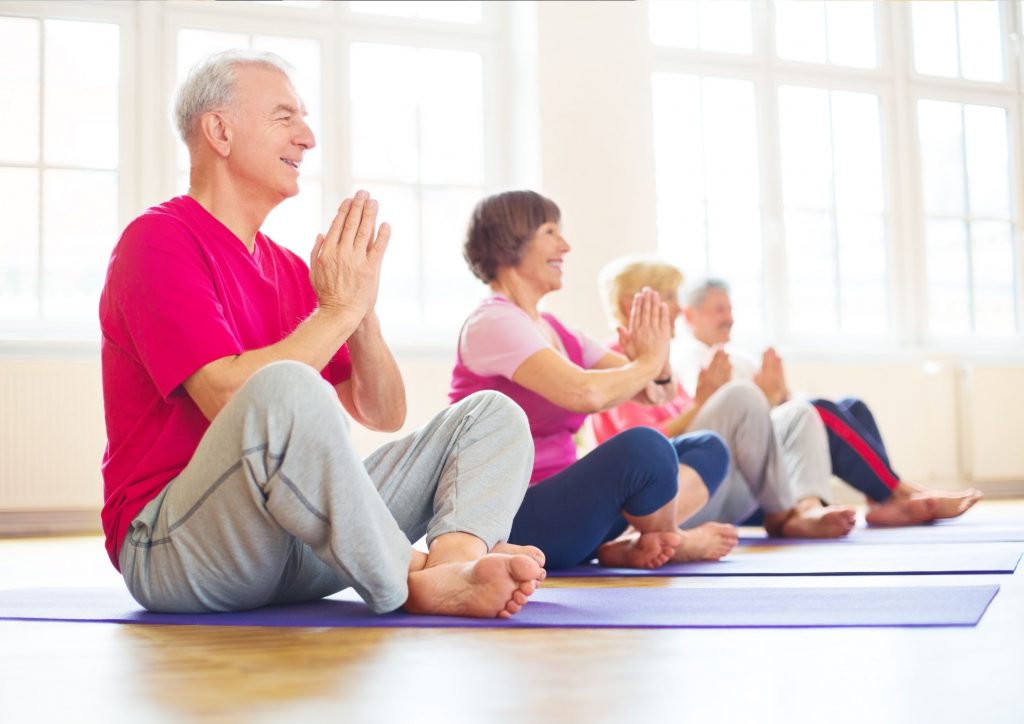
Sharing experiences is, for most of us, a very natural desire. Scientifically-speaking our brains are wired to form social connections and empathise with others and most of us have had that moment when someone else's laughter makes us laugh, or their enthusiasm and curiosity draws us closer. As we age, it is important to continue to seek out and create shared experiences. Whether it’s with old friends or new, those your own age or younger members of the family, take time every day to pay attention to moments for meaningful conversations, find opportunities to laugh, a lot, and remember, happiness is not something that happens to you, it is created by you.


